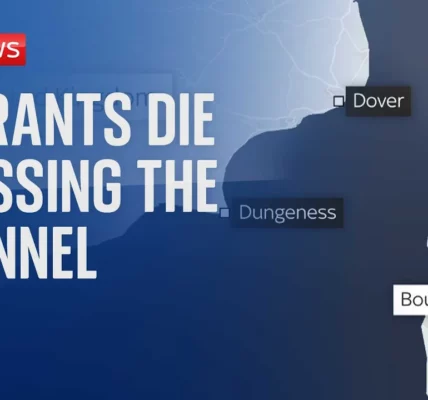The Complex Story of a Catfishing Scam: A Victim’s Journey

This article delves into the intricate and devastating reality of a catfishing scam that spanned nine years, discussing the psychological effects, legal implications, and the urgent need for societal change to protect victims.
Introduction
In today’s digital age, the phenomenon of catfishing has emerged as a significant issue affecting countless individuals. Catfishing, defined as the act of creating a false identity online to deceive others, can have profound and lasting impacts on victims. This article recounts the harrowing experience of a woman who was ensnared in an elaborate deception that lasted nearly a decade. Through her story, we will explore the complexity of relationships formed in the digital realm, the psychological consequences of such scams, and the challenges faced when seeking justice.
The Nature of the Scam
The victim’s ordeal began with an online relationship that she believed was genuine. Over nine years, she was led to believe she was connecting with a real person, only to discover that this individual was, in fact, an imposter.
Building a False Identity
The perpetrator meticulously crafted a fake identity, utilizing social networks and mutual contacts to create a façade of authenticity. This included:
- Creating approximately 60 fake Facebook profiles
- Establishing an entire community of supposed friends and family
- Gradually building rapport over several years
The Illusion of a Relationship
Despite never being romantically involved, the victim shared a deep connection with the person she thought she knew. This relationship evolved slowly, with the imposter eventually expressing love and seeking a deeper bond, particularly during a health crisis in 2015.
The Impact on the Victim
The psychological and emotional toll of discovering the truth was devastating. Many victims of such scams experience a profound sense of betrayal, shame, and confusion.
Emotional Fallout
The aftermath of the revelation led the victim to a point of despair:
- Severe emotional distress, leading to a decline in mental and physical health.
- Isolation, as friends and family struggled to understand the complexities of her situation.
- A loss of trust in relationships, making future connections difficult.
Societal Misunderstanding
Victims often face stigma and disbelief from those around them. The victim recounted how she felt dismissed and marginalized, leading to further isolation:
- People often trivialized her experience, referring to it simply as “catfishing.”
- The complexity of her situation led many to question her sanity, a common tactic employed by perpetrators of coercive control.
Legal Challenges and Systemic Issues
One of the most frustrating aspects of the victim’s experience was the lack of legal recourse available to her. In the UK, there is currently no specific law addressing catfishing, which complicates the pursuit of justice.
Interactions with Law Enforcement
When she sought help from the police, her experience was disheartening:
- Initial dismissal, with officers claiming no crime had occurred.
- Difficulty in obtaining a crime reference number, which took four days.
- A lack of understanding of the psychological manipulation involved in her case.
Need for Legal Reform
To protect future victims, the victim advocates for several changes in the legal system:
- Implementing specific laws to address online deception and catfishing.
- Enhancing training for law enforcement on recognizing and handling cases of coercive control.
- Creating clearer pathways for victims to report and seek justice.
Advocacy for Change
The victim expresses a strong desire for systemic change, not only for herself but for all victims of online scams. She emphasizes the importance of understanding the nuanced nature of coercive control in digital relationships:
- Education on the signs of online manipulation for both the public and law enforcement.
- Support systems for victims, including counseling and legal aid.
- Increased accountability for social media platforms in managing and regulating user behavior.
Conclusion
The story of this victim sheds light on the complexities of catfishing and the profound effects it can have on individuals. It highlights the urgent need for legal reforms and greater awareness in society. If you or someone you know has experienced a similar situation, it is crucial to seek support and understand that you are not alone. Together, we can advocate for change and create a safer online environment for everyone.
For more resources and support on handling online scams, visit our resource page or read our articles on coercive control and victim support systems.
“`




